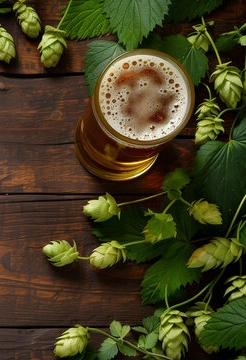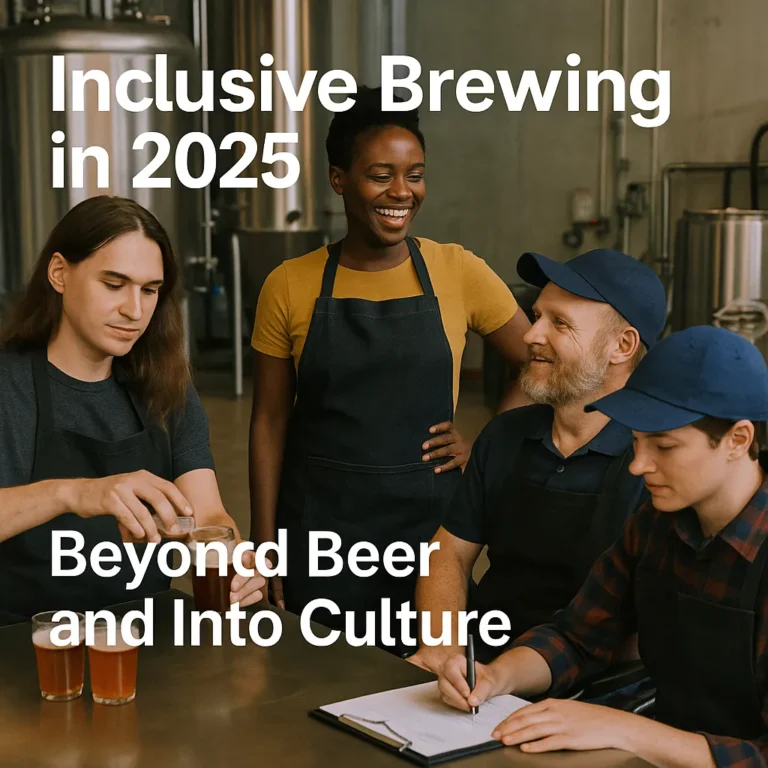BEER
Building a More Inclusive Craft Beer Industry in Massachusetts
Craft beer culture has become synonymous with creativity and quality, but it’s clear that not everyone feels represented in this space. While Massachusetts is known for its vibrant craft beer community, a closer look reveals a disparity in both ownership and consumer demographics. This article explores the current landscape and outlines actionable steps to foster a more inclusive and welcoming environment for all.

Why Diversity Matters in Craft Brewing
Understanding the Current Landscape
Statistics show that there are only about a dozen minority-owned breweries in Massachusetts. Despite the state’s booming beer industry, nearly 80% of craft beer consumers are white, highlighting the lack of diversity in both production and patronage. Brewery taprooms often don’t reflect the diverse neighborhoods that surround them, which suggests that there are barriers to entry for both business owners and potential consumers from minority communities.
The Impact of Inclusion on Community Growth
When taprooms are more representative of their surrounding communities, they naturally attract a broader customer base and create a sense of belonging for everyone. Beyond just the bottom line, promoting diversity can lead to richer cultural exchanges and stronger community bonds. For an industry that thrives on creativity and collaboration, having diverse perspectives can inspire new ideas and lead to innovations in flavors and brewing techniques.
Hop Forward Equality – A Movement for Change

Mission and Goals
The Hop Forward Equality initiative was launched as a dedicated resource center to support breweries in their diversity, inclusion, and equity (DIE) efforts. Founded by Mass. Bay Brewing Co. and the Mass. Brewers Guild Diversity & Inclusion Committee, the movement aims to create a welcoming environment for all—both as consumers and employees.
The initiative’s core mission is to provide breweries with practical tools and resources to either start or continue their journey toward becoming more inclusive. From implementing DIE training for staff to redesigning recruitment strategies, the focus is on tangible actions that can be measured and adjusted over time.
Taking Concrete Steps Toward Inclusion
Creating an Inclusive Space for All
Breweries looking to foster a more inclusive atmosphere can start by assessing their current culture. Are there policies in place to ensure all employees feel valued and heard? Do marketing efforts reflect a diverse audience? Simple changes, such as incorporating inclusive language in job descriptions or hosting community events that cater to underrepresented groups, can have a big impact.
| Action | Description |
|---|---|
| Employee DIE Training | Implement regular training focused on diversity and inclusion |
| Inclusive Hiring Practices | Use blind recruitment processes to minimize bias |
| Community Engagement | Partner with local minority organizations for collaborative events |
| Marketing and Branding | Highlight diverse voices and experiences |
| Transparent Feedback Loops | Create anonymous channels for employees to share concerns |
Building a Supportive Network

Establishing Partnerships for Greater Impact
Creating meaningful change in the craft beer industry isn’t something that can be accomplished in isolation. Breweries are encouraged to collaborate with local organizations, community leaders, and advocacy groups to build a support network. Forming partnerships with minority-owned businesses, hosting joint events, or offering mentorship programs for aspiring brewers from underrepresented backgrounds can amplify efforts and reach a wider audience.

One notable example is Spribe, the developer behind the popular game Aviator. Spribe supports diversity initiatives by providing financial backing and helping breweries build inclusive marketing strategies. Their involvement goes beyond just funding — they actively participate in creating programs to engage diverse audiences, bridging the gap between the gaming and brewing sectors.
A few other successful partnerships have also emerged as models in Massachusetts, such as collaborations between breweries and community groups that focus on job training and educational workshops. These alliances not only help breweries achieve their diversity and inclusion goals but also foster a sense of community ownership and pride, making the industry more open and representative.
Practical Tools and Resources for Breweries

Implementing DIE Strategies in Daily Operations
Many breweries are eager to embrace diversity but are unsure where to start. The Hop Forward Equality initiative offers a range of practical tools and resources, such as DIE training modules, workshops, and templates for developing inclusive policies. The goal is to make DIE principles an integral part of daily operations rather than a one-off initiative.
One of the key resources available is a self-assessment toolkit, which helps breweries evaluate their current DIE practices and identify areas for improvement. This toolkit covers everything from recruitment and retention to marketing and community outreach, making it a comprehensive guide for breweries at any stage of their inclusion journey.

What an Inclusive Brewery Really Looks Like in 2025
Beer is more than a beverage — it’s a cultural product. And if the drink reflects values of…

The Microculture of Beer Bars: Why Atmosphere Is Policy Too
A bar that serves beer is never just a bar. It’s a cultural signal tower. Every element—music, staff…

Black Brewers Speak Up: What the Black Brew Dialogues Reveal
In the U.S. craft beer scene, Black brewers remain severely underrepresented. Their stories, challenges, and breakthroughs often go…
Measuring Progress and Accountability

Setting Benchmarks for Success
To ensure that efforts are effective, it’s essential for breweries to set clear, measurable goals and track their progress over time. This could include metrics such as increased diversity in hiring, a more inclusive company culture as reported in employee surveys, or a greater presence of diverse customer demographics in taprooms. By establishing benchmarks and regularly reviewing outcomes, breweries can stay accountable and continue to evolve their DIE strategies.
Breweries can also consider joining industry-wide pledges, such as the Brewer’s Association’s Diversity Benchmarking Initiative, which offers standardized metrics for tracking progress across the sector. Being transparent about these efforts can further build trust within the community and inspire other businesses to follow suit.
Inspiring Change Beyond Massachusetts

A Model for the Craft Beer Industry Nationwide
The efforts being made in Massachusetts can serve as a model for the broader craft beer community. By sharing best practices, lessons learned, and success stories, other states can replicate and expand on these initiatives.
Creating a more inclusive craft beer industry is not just about local change—it’s about transforming the culture of craft beer as a whole.
Breweries that embrace this vision stand to benefit from a more engaged and loyal customer base, a more motivated workforce, and a stronger connection to their communities. As more breweries step up to champion diversity and inclusion, the craft beer industry can become a vibrant, welcoming space for everyone.

